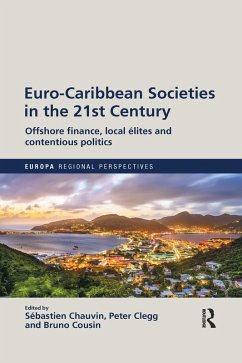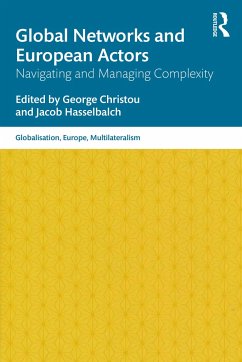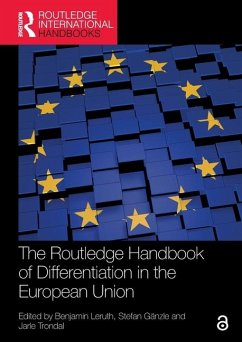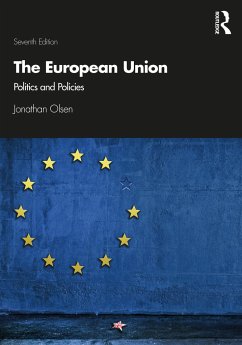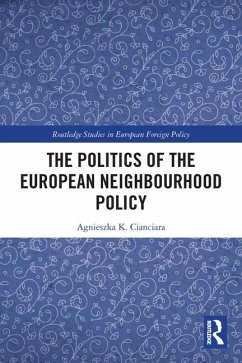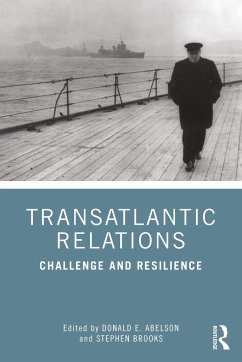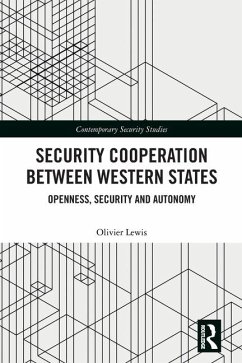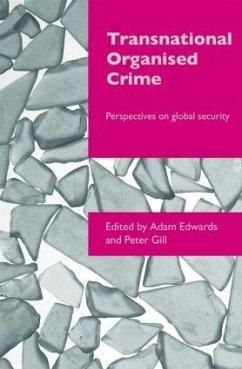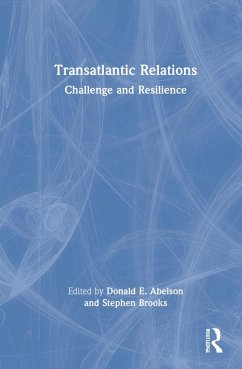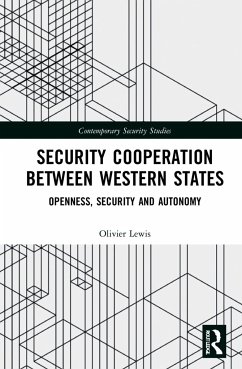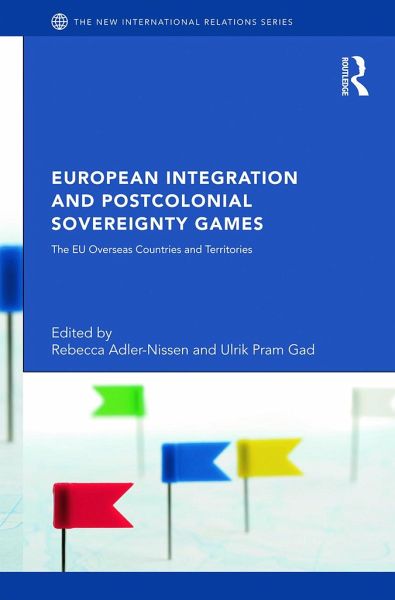
European Integration and Postcolonial Sovereignty Games
The EU Overseas Countries and Territories
Herausgegeben: Adler-Nissen, Rebecca; Gad, Ulrik
Versandkostenfrei!
Versandfertig in 6-10 Tagen
49,99 €
inkl. MwSt.
Weitere Ausgaben:

PAYBACK Punkte
25 °P sammeln!
This book examines how sovereignty works in the context of European integration and postcolonialism. Focusing on a group of micro-polities associated with the European Union, it offers a new understanding of international relations in the context of modern sovereignty.This book offers a systematic and comparative analysis of the Overseas Countries and Territories (OCTs), the EU and the four affected Member States: UK, France, the Netherlands and Denmark. Contributors explore how states and state-like entities play 'sovereignty games' to understand how a group of postcolonial entities may strat...
This book examines how sovereignty works in the context of European integration and postcolonialism. Focusing on a group of micro-polities associated with the European Union, it offers a new understanding of international relations in the context of modern sovereignty.
This book offers a systematic and comparative analysis of the Overseas Countries and Territories (OCTs), the EU and the four affected Member States: UK, France, the Netherlands and Denmark. Contributors explore how states and state-like entities play 'sovereignty games' to understand how a group of postcolonial entities may strategically use their ambiguous status in relation to sovereignty. The book examines why former colonies are seeking greater room to manoeuvre on their own, whilst simultaneously developing a close relationship to the supranational EU. Methodologically sophisticated, this interdisciplinary volume combines interviews, participant observation, textual, legal and institutional analysis for a new theoretical approach to understanding the strategic possibilities and subjectivity of non-sovereign entities in international politics.
Bringing together research on European integration and postcolonial theory, European Integration and Postcolonial Sovereignty Games will be of interest to students and scholars of International Relations, EU studies, Postcolonial studies, International Law and Political Theory.
This book offers a systematic and comparative analysis of the Overseas Countries and Territories (OCTs), the EU and the four affected Member States: UK, France, the Netherlands and Denmark. Contributors explore how states and state-like entities play 'sovereignty games' to understand how a group of postcolonial entities may strategically use their ambiguous status in relation to sovereignty. The book examines why former colonies are seeking greater room to manoeuvre on their own, whilst simultaneously developing a close relationship to the supranational EU. Methodologically sophisticated, this interdisciplinary volume combines interviews, participant observation, textual, legal and institutional analysis for a new theoretical approach to understanding the strategic possibilities and subjectivity of non-sovereign entities in international politics.
Bringing together research on European integration and postcolonial theory, European Integration and Postcolonial Sovereignty Games will be of interest to students and scholars of International Relations, EU studies, Postcolonial studies, International Law and Political Theory.





